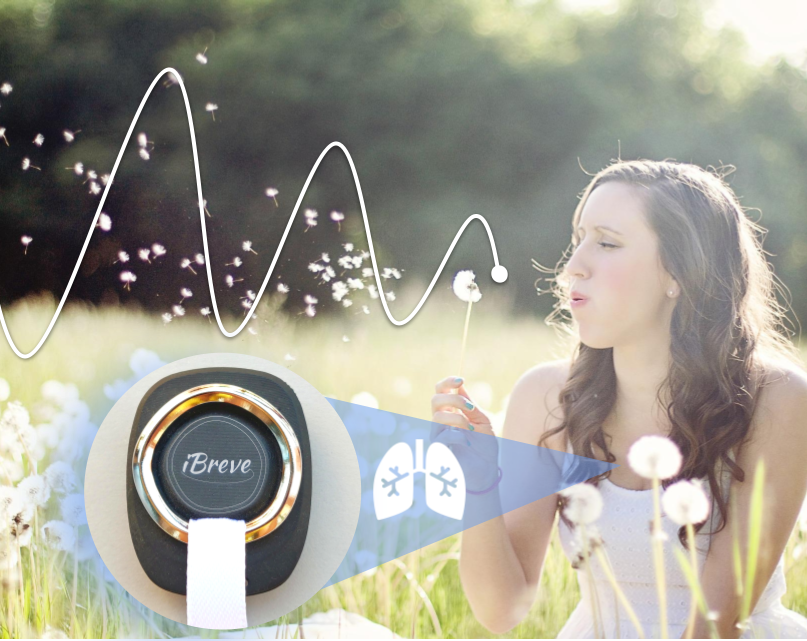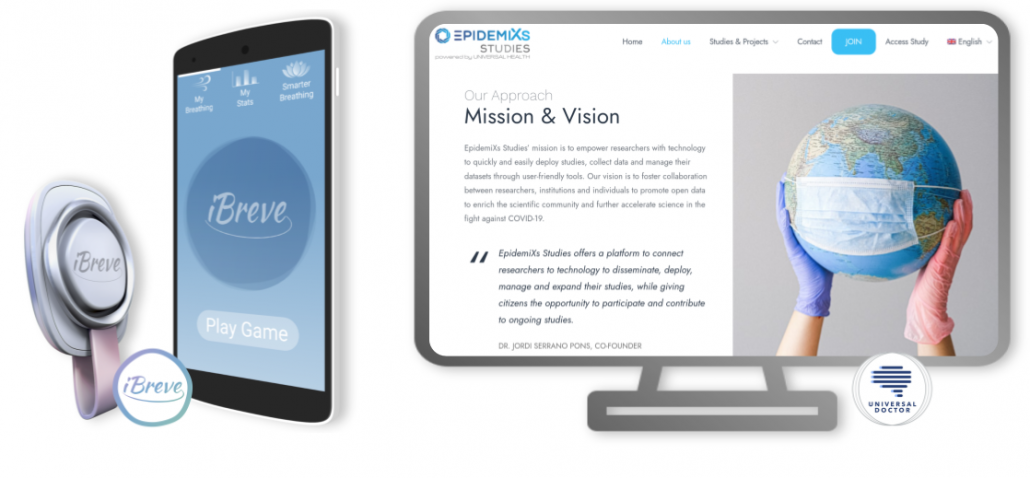DigiBreath
Today’s landscape of the most common respiratory diseases and disorders has changed. With the emergence of the severe acute respiratory coronavirus 2 (SARS-CoV-2) and its associated disease, COVID-19, inescapable pressure on personal health, society and organisations has risen and is still negatively impacting health systems around the world. Despite immense progress, we still do not know enough about the disease and its long-term consequences. The European Commission is working towards limiting the spreading of the virus while also countering the socio-economic impact of the pandemic. Some of the associated measures are seen in support of medical research and securing the supply of medical equipment, both of which support patient recovery.
Despite recovering from the acute disease, many patients continue to experience debilitating long-term effects. Post-Covid Syndrome (PCS) (a.k.a. Long-COVID) affects up to 28% of patients and is an emerging public health priority, as it limits the patients’ everyday activities. The most affected organs are the lungs with over 80% of patients having respiratory symptoms, which can result in severe chronic respiratory diseases.
Manual counting of the respiratory rate by a nurse observing a patient’s chest movement is still the industry standard in many health centres. Clinicians and patients face the same issue as there is a lack of home monitoring for respiratory impairments.

DigiBreath works towards automated monitoring of respiration through the usage of a novel wearable device. The device can also be coupled to the user’s smartphone, hence easing usage in the ever so more digital society. The solution provides new insights into a person’s well-being and potential recommendations for improvement in their daily routines. People who follow a personal plan and recommendations for recovery from their ailments have a higher chance for a speedier recovery with fewer long-term implications.
In the future, the device aims to support clinicians by analysing respiratory patterns in real-time to detect and predict pulmonary complications. In addition to navigating patients to a faster recovery, such outcomes also support medical practitioners in the assessment of patients’ health status.
In its initial phase, when succeeding in gaining support through DigiFed’s third Open Call for Application Experiments, DigiBreath was in the process of taking its proof of concept towards higher levels of technological maturity. The progress made during the project has tremendously contributed to the technology and the further development of the user app & software, which is managing the input data from the wearable device and provides the user with insights and exercises to improve well-being. Further, the project strives for a holistic solution that combines physical hardware devices with associated on-device algorithms and linked analytics applications on the user’s smartphone.
The setup is underpinned by insights from leading expert medical professionals in the field. The intended use of the device touches upon both, the health sector, as well as the well-being domain.
Two partner organisations are behind the DigiBreath project, iBreve and UniversalDoctor. iBreve develops self-care solutions that focus on the prevention and promotion of healthy living through increased usage of its new patent-pending wearable technology that analyses respiratory patterns in real time. The technology enables stress reduction and remote monitoring for chronic disease management. UniversalDoctor brings its global worldwide expertise in digital health. It drives the inclusion of DigiBreath’s health solution as a decision-supporting tool and a remote patient monitoring platform in different healthcare verticals. The organisation aims to democratise access to digital healthcare.

DigiBreath Application Experiment is directly monitored and supported by AVL List GmbH and indirectly backed by DigiFed partners. Besides financial backing, the key support aspects come in the form of innovation management consulting and rising awareness of DigiFed’s value-bearing assets.
The next steps include iterated optimizations & customizations, scaling and releasing to the market via the partners’ go-to-market strategy. In line with the expected technical advance in terms of supporting analytics and algorithms, the product and associated services aim for a wider uptake in well-being as well as for professional healthcare applications, which is where the highest valued impact is expected. Considering that Covid-19 is not eradicated yet, the relatively high number of Long-Covid patients, as well as the number of other respiratory diseases (e.g., COPD and Asthma) sufferers, the capability of DigiBreath’s solution to help those patients, is seen as a cornerstone for sustained usage. Understanding the clinical characteristics of COVID-19 & Long-Covid in comparison to other acute respiratory illnesses is of utmost importance. DigiBreath partners are also continuing development on several other fronts and are already participating and are open to other public/private-funded activities. These activities are strengthened with the anticipated approval of the pending technology patent.
As this Application Experiment is bridging the physical and virtual world with a cyber-physical system (CPS) in respiratory monitoring, it carries the potential to help nearly 3 million Long-Covid patients in the EU, but also patients with respiratory diseases, such as COPD and Asthma. DigiBreath follows an interdisciplinary approach with 2 international partners along the value chain, combining a patent-pending wearable sensor with digital health expertise for fast market validation and market access. This game-changing response to one of the largest health challenges of our time is reducing healthcare costs per patient and creating a major shift towards preventive and personalized treatment.

 This project has received funding from the European Union’s Horizon 2020 research and innovation programme under grant agreement No. 872088.
This project has received funding from the European Union’s Horizon 2020 research and innovation programme under grant agreement No. 872088.